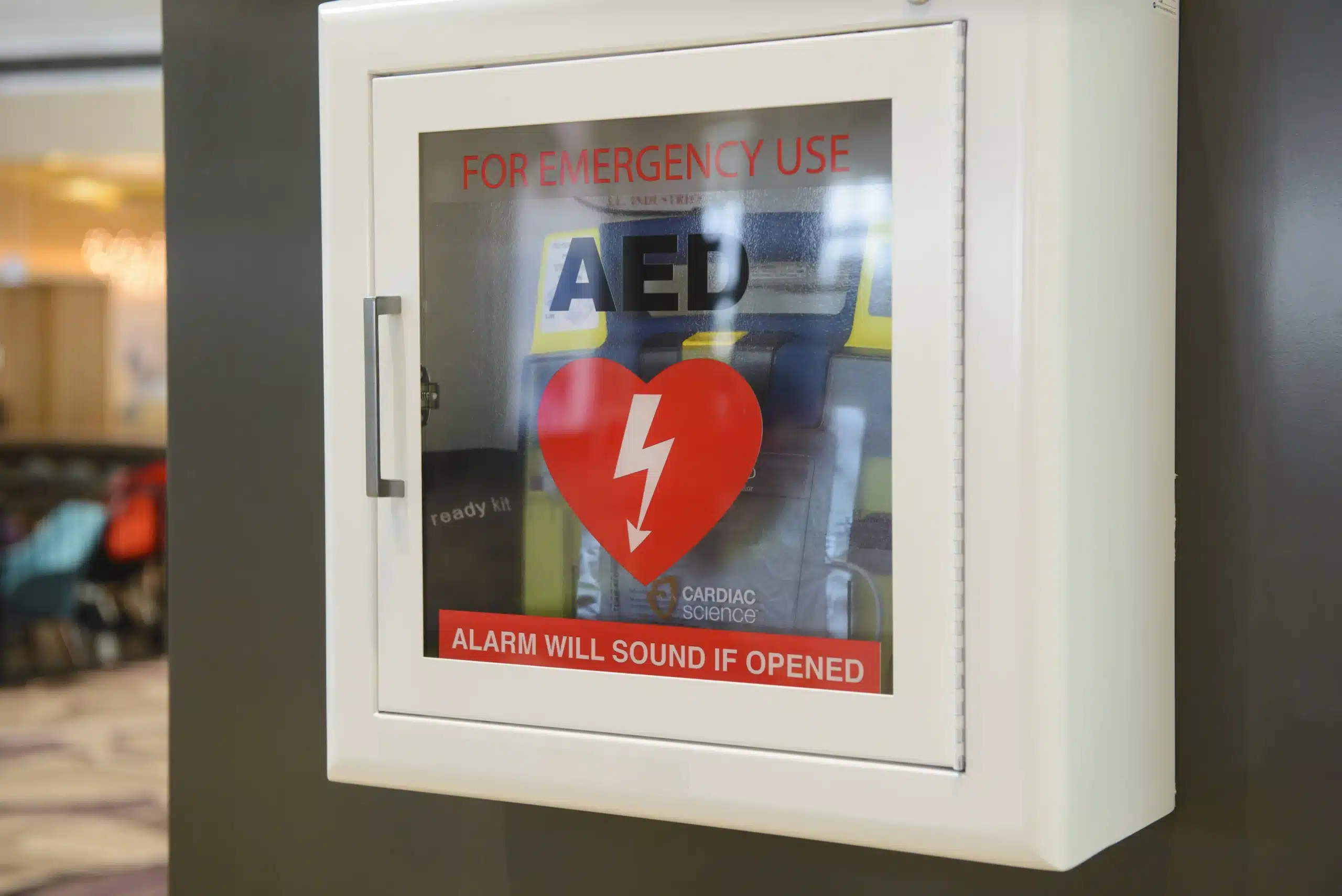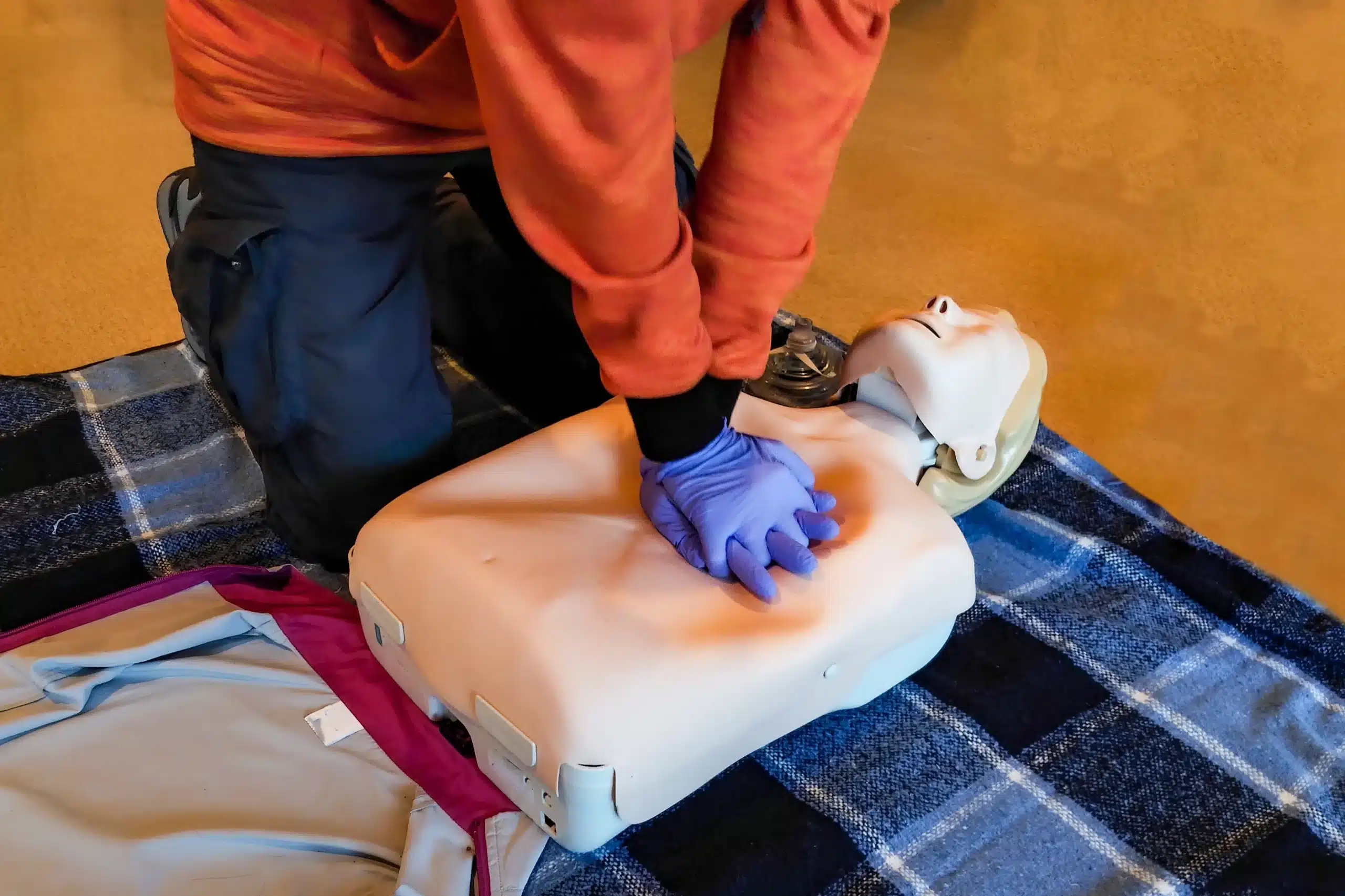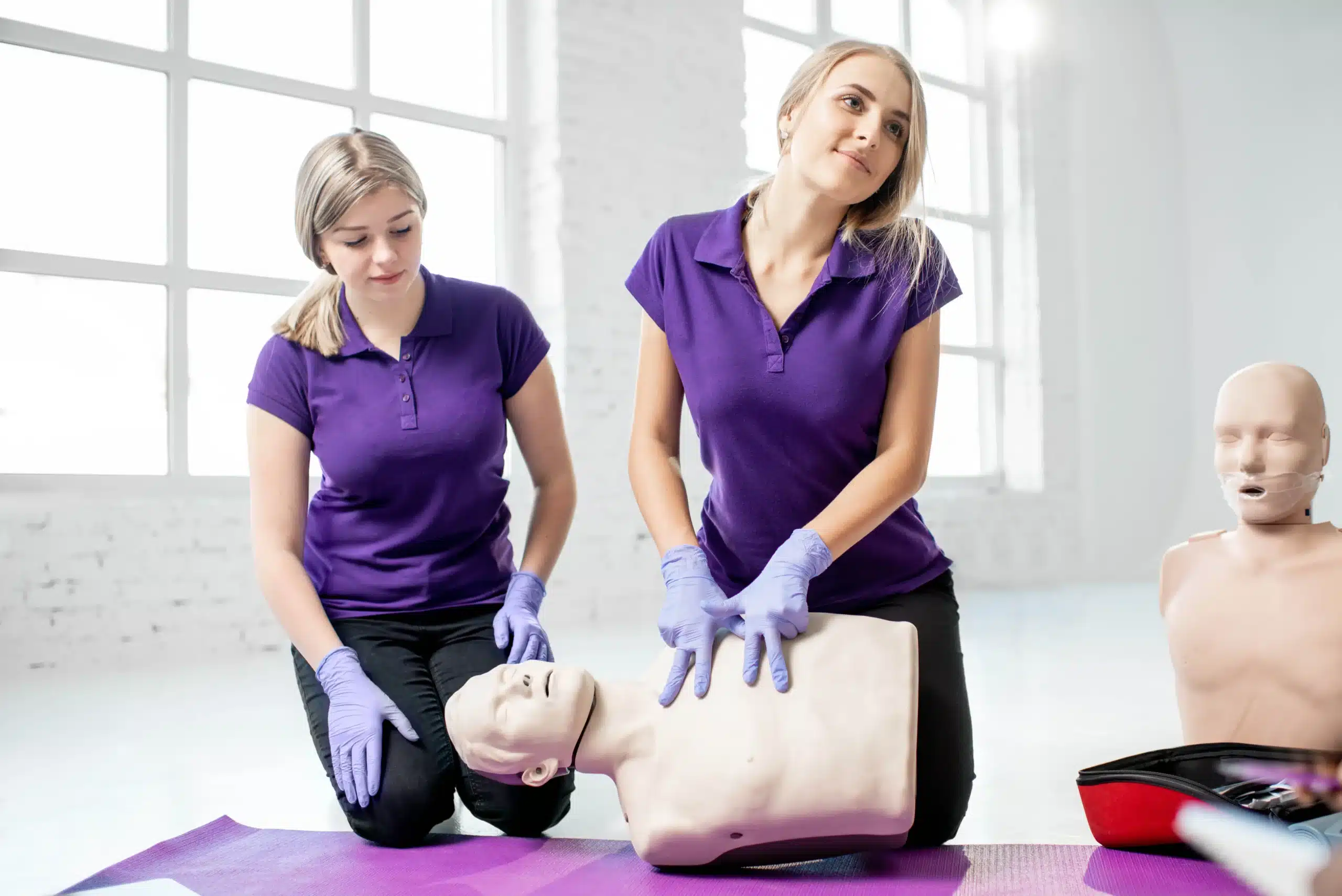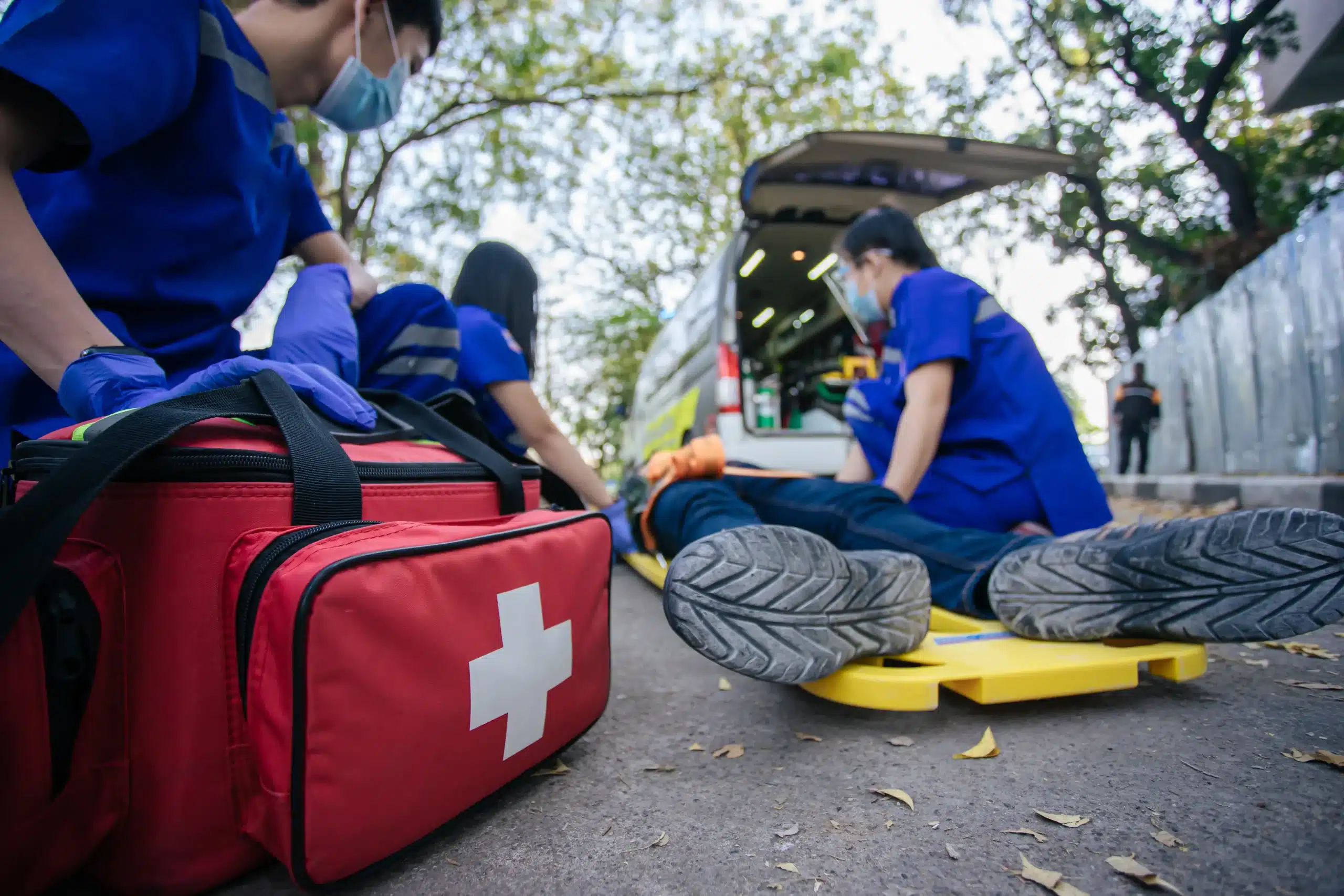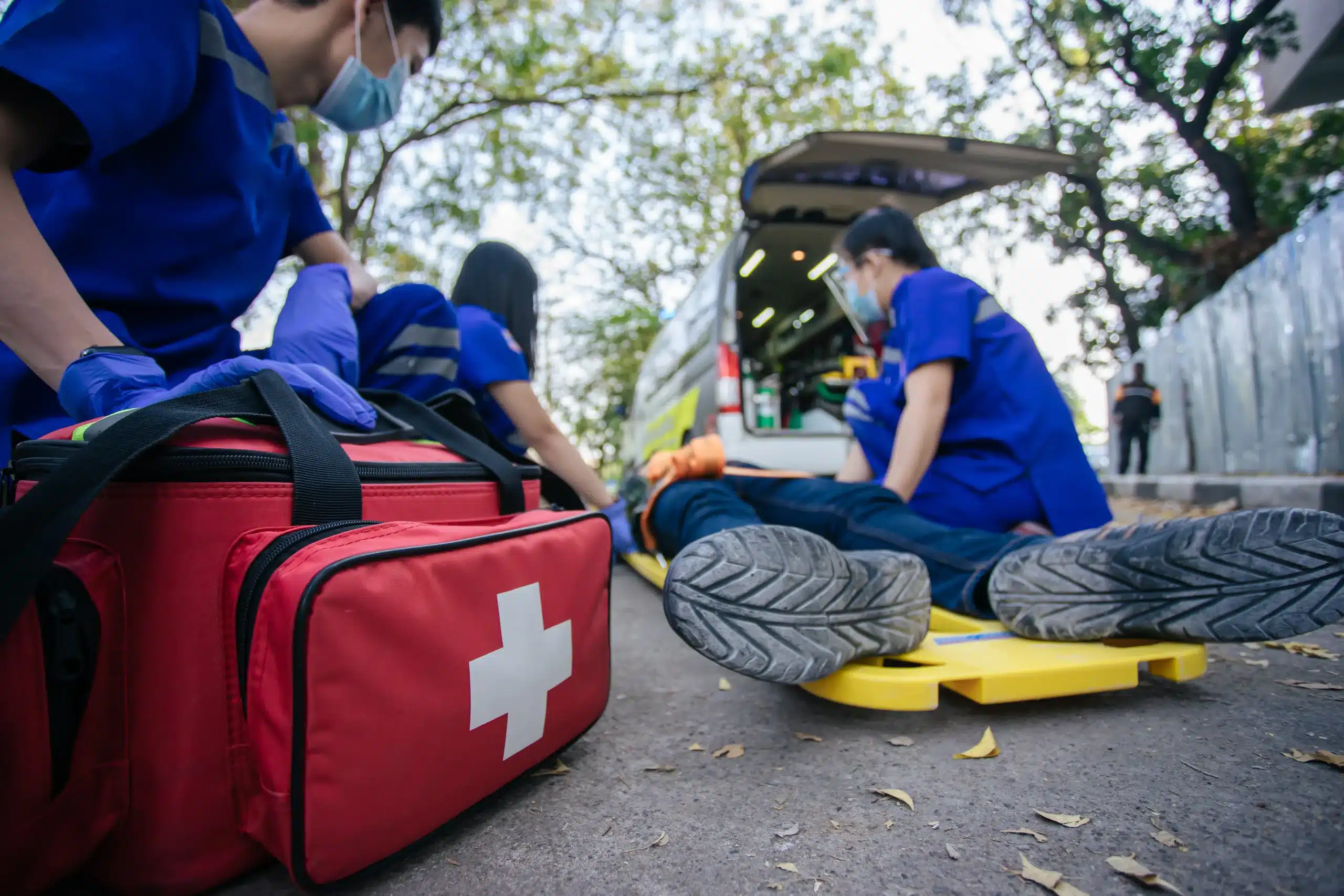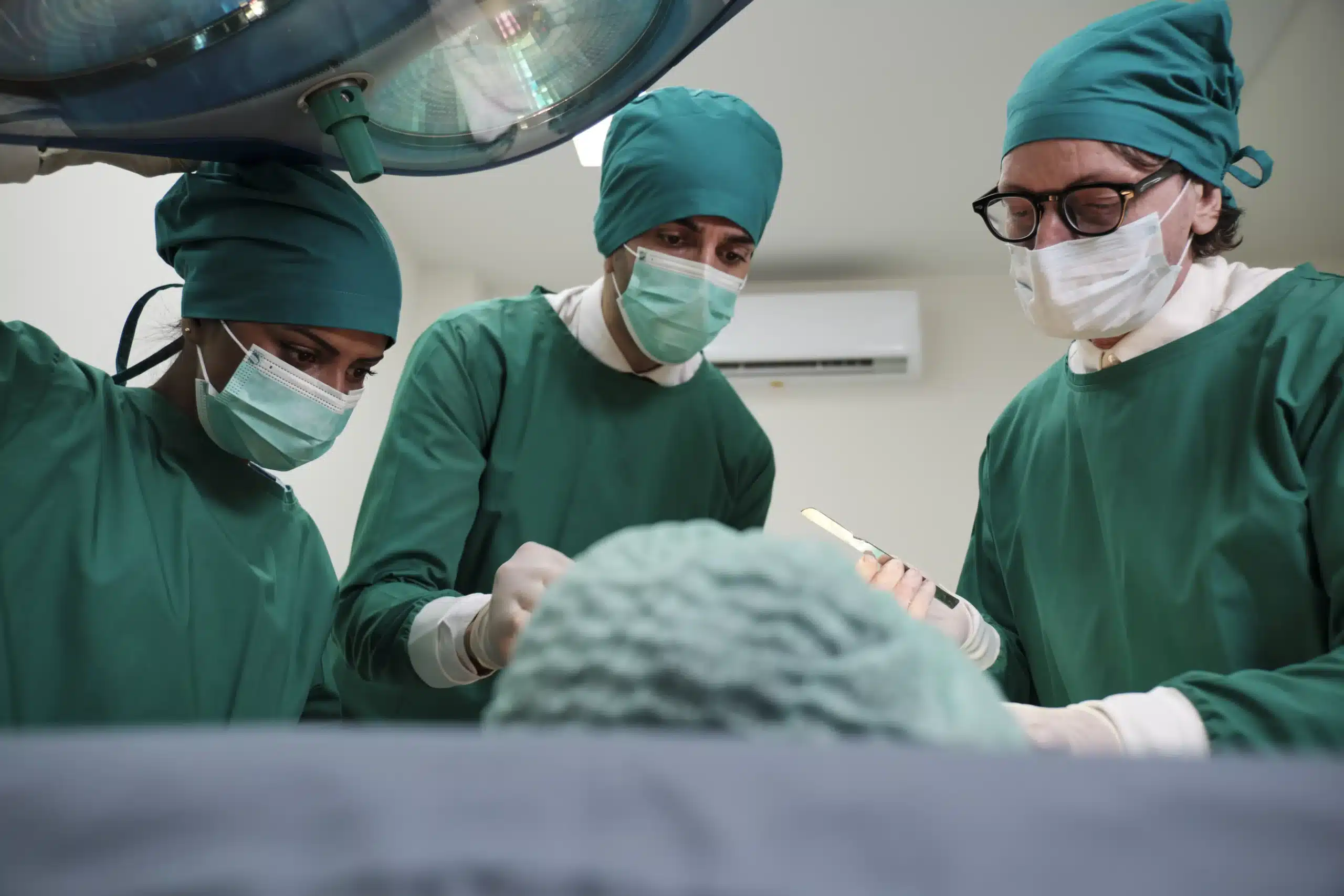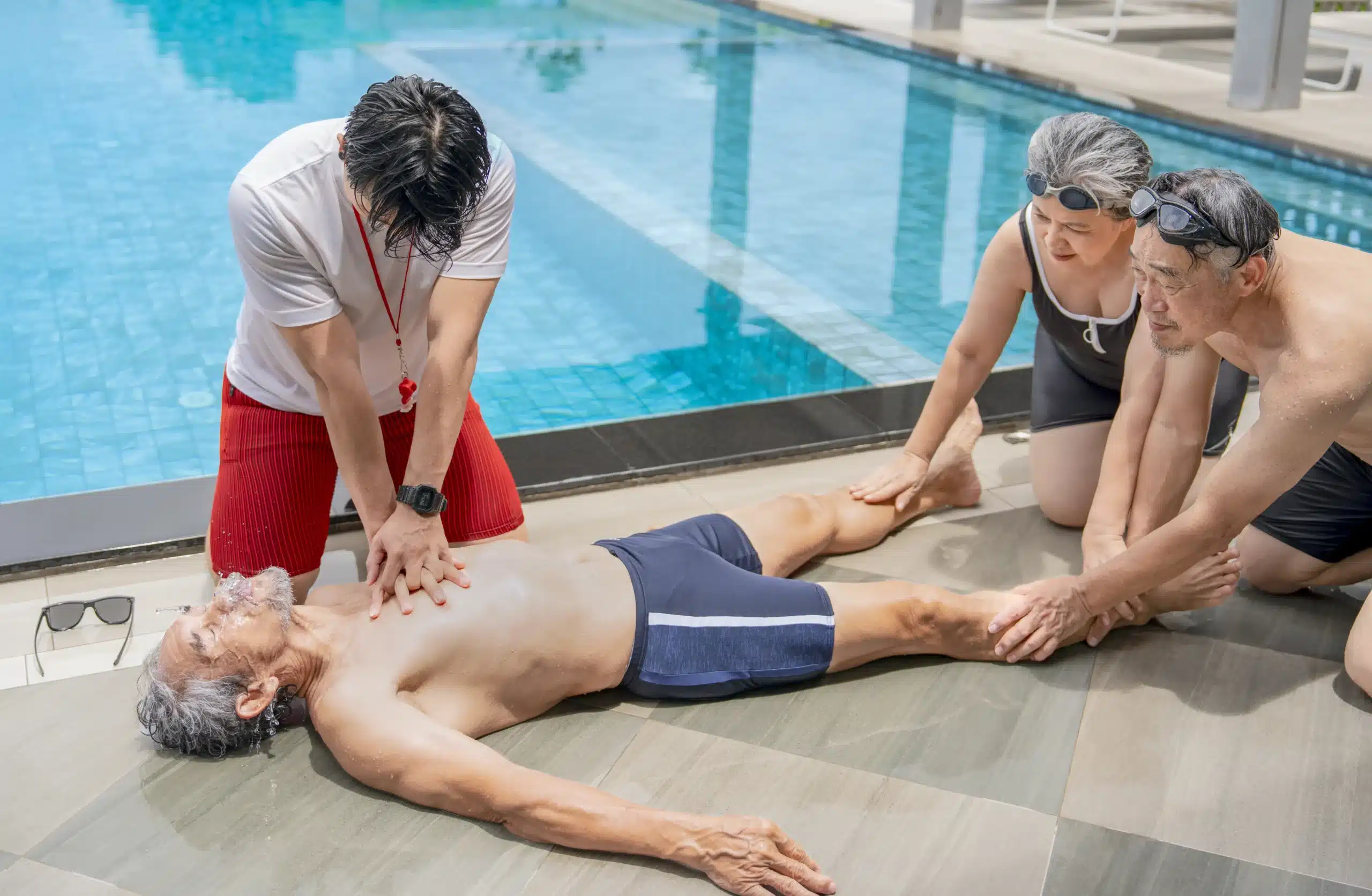Working with newborns is a privilege, but it also comes with immense responsibility. As healthcare professionals, we know that those first few moments after birth can be critical. That’s why Neonatal Resuscitation Program (NRP) certification is so vital, especially in Milpitas. NRP equips us with the skills to handle any emergency, giving newborns the best possible start in life. This post explores the importance of NRP in Milpitas, covering everything from the core skills taught to how it elevates the standard of neonatal care in our community. Whether you’re a seasoned healthcare provider or just starting your career, understanding the value of NRP is essential for anyone involved in newborn care. Let’s dive into why NRP certification is so crucial for the health and well-being of our tiniest patients in Milpitas.
Key Takeaways
- NRP is essential for newborn care: This specialized training equips healthcare providers with life-saving skills, leading to better outcomes for infants in emergencies. Get certified to make a real difference.
- Find the right NRP course in Milpitas: Look for providers offering flexible schedules, a blend of online and hands-on learning, and realistic simulations. This ensures you get the practical training you need.
- Make the most of your NRP certification: Actively apply your skills, connect with peers, and stay up-to-date on the latest guidelines. Your ongoing commitment improves the quality of neonatal care in your community.
What is NRP and Why is it Important in Milpitas?
What is the Neonatal Resuscitation Program?
The Neonatal Resuscitation Program (NRP) equips healthcare providers with the skills to handle neonatal emergencies. It’s a vital program for anyone involved in newborn care, giving them the tools to administer life-saving interventions. Think of it as the gold standard for ensuring newborns receive the best possible care during those critical first moments. If you’re a healthcare professional working with newborns, NRP certification is essential. For more information about NRP Certification in Milpitas, check out this complete guide.
Essential NRP Skills and Knowledge
The NRP program, overseen by the American Academy of Pediatrics (AAP) and the American Heart Association (AHA), focuses on evidence-based practices. The curriculum covers a range of crucial skills, from airway management and chest compressions to administering medications during resuscitation. This comprehensive training ensures healthcare providers can confidently respond to various emergency situations.
Challenges for Milpitas Healthcare Professionals
Healthcare professionals in Milpitas, like those everywhere, need ongoing training to stay up-to-date on the latest resuscitation techniques. NRP overcome these challenges.
How NRP Improves Neonatal Care
NRP certification directly translates to better outcomes for newborns. By taking NRP classes, healthcare providers gain the skills that can make a real difference in critical situations. This training is a cornerstone of quality neonatal care, contributing to the health and well-being of infants in Milpitas and beyond. It empowers professionals to act quickly and decisively, potentially saving lives. Explore the positive impact of NRP training on neonatal care in the Bay Area.
NRP Certification Courses in Milpitas: What to Expect
So, you’re considering getting your NRP certification—fantastic! This section covers what the training involves and how to find the right course in Milpitas.
Course Content and Structure
NRP certification equips healthcare providers with the skills to respond effectively to newborn emergencies. The course covers the essentials of neonatal resuscitation, from basic life support to advanced procedures. Expect a blend of interactive lectures, simulations, and debriefings. This training is crucial for anyone involved in newborn care, ultimately improving outcomes for these tiny patients.
Online Learning and Hands-on Practice
The Neonatal Resuscitation Program (NRP) is overseen by both the American Academy of Pediatrics (AAP) and the American Heart Association (AHA). This ensures a high standard of training based on the latest research and best practices. Many NRP courses now incorporate online learning modules, allowing you to study at your own pace before attending the in-person skills session. This blended learning approach maximizes your hands-on practice time with realistic simulation manikins.
Prerequisites and Qualifications
There are no formal prerequisites for taking an NRP course. However, it’s designed for healthcare professionals regularly involved in newborn care, such as doctors, nurses, respiratory therapists, and midwives. Check out these NRP certification classes to build these essential skills if you’re in Milpitas.
NRP Providers in Milpitas:
Santa Clara CPR Classes
Santa Clara CPR Classes offers NRP certification convenient to Milpitas, San Jose, and Santa Clara. Known for their commitment to customer service and flexible scheduling, they are a solid option for busy professionals. Visit their website for upcoming course dates and registration information.
Bay Area CPR
Bay Area CPR provides NRP courses in several Bay Area locations, including Milpitas. They offer both initial certification and renewal courses.
Safety Training Seminars
Safety Training Seminars also offers NRP courses and is known for its competitive pricing. They often run promotions, so it’s worth checking their website for potential discounts.
Milpitas CPR Classes
Milpitas CPR Classes focuses on providing high-quality NRP training to local healthcare providers. They emphasize the direct impact these skills have on improving outcomes for newborns in the community.
NRP Certification: Costs, Registration, and Schedule
Costs and Discounts
NRP certification in Milpitas typically costs around $280, covering both the online coursework and the in-person skills testing. Santa Clara CPR Classes offers a Low Price Guarantee and maintains competitive prices in Northern California. They also offer a price match guarantee, so you can be confident you’re getting good value for your training.
Register for NRP Certification
Registering for your NRP certification is straightforward. Several organizations, including Santa Clara CPR Classes, offer NRP certification in and around Milpitas. This makes it easy to find a course that fits your schedule. You can visit their websites or contact them directly to register for upcoming classes.
Flexible Scheduling
One advantage of NRP certification through providers like Santa Clara CPR Classes is the flexible scheduling. They offer classes frequently—about 16 times per month—to accommodate busy healthcare professionals. This allows you to choose a date and time that works for you. You can often complete the online portion and the in-person skills testing within 24 hours, streamlining the certification process. Learn more about NRP courses and renewal options.
Common NRP Training Challenges
Even with excellent instruction, some healthcare providers face challenges when learning NRP. One common hurdle is a lack of prior experience with neonatal resuscitation. Because these situations demand specific knowledge and skills, some participants may find certain aspects challenging. However, with dedicated practice and the right training resources, you can overcome these challenges and develop the confidence to apply your NRP skills effectively. High-quality NRP courses address these challenges directly, providing comprehensive training and support.
Get the Most Out of Your NRP Training
Becoming NRP certified is a significant step, but the real value lies in applying and retaining those skills. Here’s how to maximize your NRP training:
Learn and Retain NRP Skills Effectively
NRP certification equips healthcare providers with life-saving skills. Focus on understanding the underlying principles of neonatal resuscitation, not just memorizing the steps. This deeper understanding will help you adapt to different situations and build confidence. Active recall, reviewing the material regularly, and using online resources can reinforce your knowledge. Consider supplementing your training with continuing education courses to stay up-to-date on the latest guidelines and best practices.
Practice with Simulation Manikins
Hands-on practice is crucial for mastering NRP skills. Take advantage of every opportunity to work with simulation manikins. This allows you to experience realistic scenarios and practice your responses in a safe environment. Repetition builds muscle memory and helps you develop the quick thinking needed in real emergencies. If your initial course didn’t offer extensive simulation practice, look for workshops or refresher courses that emphasize hands-on training.
Network with Peers and Instructors
Connect with your fellow NRP providers and instructors. Discussing real-world experiences and sharing tips can provide valuable insights and broaden your understanding. Networking also creates a support system for ongoing learning and professional development. Consider joining online forums or attending conferences to expand your network and stay informed about advancements in neonatal resuscitation. Safety Training Seminars is one provider that may offer these opportunities.
Apply NRP Skills in Real-World Situations
The ultimate goal of NRP training is to improve outcomes for newborns. Actively look for opportunities to apply your skills in your workplace. This might involve participating in simulations, mentoring new colleagues, or taking a leadership role in resuscitation events. Regularly reviewing case studies and participating in debriefings after real-life emergencies can further enhance your skills and prepare you for future challenges. Remember, consistent application and ongoing learning are key to maintaining proficiency and providing the best possible care for newborns.
NRP Certification: Impact on Milpitas Healthcare
When a newborn needs critical care, seconds count. Neonatal Resuscitation Program (NRP) certification equips healthcare professionals with the skills to respond quickly and effectively in these high-stakes situations. The impact of NRP extends beyond individual providers—it strengthens the entire healthcare system in Milpitas.
Participant Feedback and Success
Healthcare providers who complete NRP training often report increased confidence in their ability to manage neonatal emergencies. Knowing they have the skills to provide essential care during a newborn’s most vulnerable moments is empowering. This confidence translates to better outcomes for newborns and greater peace of mind for families. As highlighted in this guide to NRP certification, NRP training is essential for any professional involved in newborn care.
Meet Regulatory Requirements
The Neonatal Resuscitation Program is jointly overseen by the American Academy of Pediatrics (AAP) and the American Heart Association (AHA). This collaboration ensures that NRP certification courses offer comprehensive, evidence-based training aligned with the latest medical guidelines. For healthcare providers in Milpitas, NRP certification demonstrates a commitment to meeting these rigorous standards and providing the highest quality of care.
Long-Term Benefits of NRP
The positive effects of NRP certification ripple throughout the Milpitas community. When more healthcare professionals receive training in neonatal resuscitation, the entire system is better prepared to handle emergencies. This preparedness can lead to improved survival rates, reduced complications, and better long-term health outcomes for newborns. NRP classes contribute to a stronger, more resilient healthcare system for everyone.
Improve Neonatal Care Quality in Milpitas
NRP certification directly impacts the quality of neonatal care in Milpitas. Healthcare providers with NRP skills are better equipped to respond effectively to emergencies, increasing the likelihood of positive outcomes for infants. This specialized training ensures that Milpitas hospitals and clinics can provide the best possible care for newborns, giving them the strongest start in life. You can find NRP certification classes in Milpitas offered by various providers.
Related Articles
- CPR Training in Milpitas: Your Complete Guide – Santa Clara CPR Classes
- NRP Classes in Santa Clara, CA – Santa Clara CPR Classes
- RQI in Milpitas: Your Guide to CPR Training – Santa Clara CPR Classes
- CPR Renewal in San Jose: Your Complete Guide – Santa Clara CPR Classes
- PALS Certification in Santa Clara: Costs & Requirements – Santa Clara CPR Classes
Frequently Asked Questions
Is NRP certification required for all healthcare professionals in Milpitas?
While not mandatory for everyone, NRP certification is highly recommended for any healthcare professional involved in newborn care. This includes doctors, nurses, respiratory therapists, and midwives. It demonstrates a commitment to best practices and enhances your ability to respond effectively in emergencies.
What if I don’t have any prior experience with newborns? Can I still take an NRP course?
Absolutely. There aren’t any prerequisites for NRP certification. The course is designed to teach you everything you need to know, from the basics to advanced techniques. While some aspects might feel challenging at first, the hands-on training and supportive learning environment will help you build confidence.
How often do I need to renew my NRP certification?
NRP certification is typically valid for two years. Renewal courses are available to keep your skills current and ensure you’re up-to-date on the latest guidelines.
What’s the difference between NRP and other resuscitation certifications like BLS or PALS?
While all these certifications focus on life-saving techniques, they address different age groups and situations. BLS (Basic Life Support) covers general life support for all ages, while PALS (Pediatric Advanced Life Support) focuses on children. NRP is specifically tailored to the unique needs of newborns.
How can I find NRP courses near me in Milpitas?
Several organizations offer NRP certification in the Milpitas area. You can find courses through Santa Clara CPR Classes, Bay Area CPR, Safety Training Seminars, and Milpitas CPR Classes. Check their websites or contact them directly to find a course that fits your schedule and budget.
